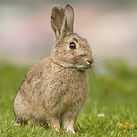DON'T LET IT LOOSE

Water gardeners, aquarium + terrarium owners can select from a variety of aquatic plants, invertebrates, reptiles and fish. Unfortunately, some of these exotic species have the potential to become invasive. Pets that become too much for an owner to care for are sometimes let loose into nearby water or woods.
Releasing pets into the wild is both inhumane and dangerous; some people believe that when they don’t want their pets any longer, the best thing to do for the animal is to release it into the wild. However, this is cruel, dangerous to the environment, as well as illegal.
Most pets don’t survive in the wild – some die by being killed by predators or hit by cars, and others die of starvation. It is inhumane to release an animal into an environment it is not accustomed to. Releasing a pet into an unsuitable habitat is also considered animal cruelty and charges can be laid (BC SPCA).
Some exotic pets are able to thrive and reproduce in their new environment. Once established, they can take over their new habitat, reducing native populations and changing the structure of the ecosystem. Even if your aquatic pet is known to be native to the local environment, it should still never be released, as it may introduce diseases or invasive parasites into the local ecosystem.
Never release your plants and animals into the wild or dump aquariums or water garden debris into rivers, streams, lakes or storm sewers!

American Bullfrog

Eurasian Watermilfoil

Parrot Feather

Goldfish

Red Eared Slider Turtle

European Rabbit

Brazilian Elodea
What Should I Do Instead?
1.
Contact the place where you purchased the animal to see if they will take it back.
2.
Contact local science centers, zoos, or aquariums to see if they can use the animal for educational purposes.
3.
Dry and freeze unwanted aquatic plant material and add it to non-composted trash

